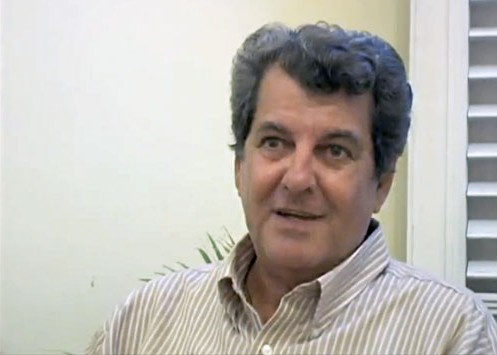The First Book of the End of Castroism
by Orlando Luis Pardo Lazo / March 31, 2014 / No comments
The regime is accused of murder.

Cuban dissident and opposition party leader Oswaldo Payá in an interview before his death. Photo: Youtube user CubaMoneyProject
The Madrid publisher Anaya has just released the first book of the end of Castroism—that is, of Castroism understood as a myth perpetuated by the intellectual left. From now on, one cannot sympathize with the Castro dynasty without also becoming a criminal collaborator.

- Is it worth-while to focus on the last images and letters coming from the inside of the last living utopia on Earth? Is Cuba by now a contemporary country or just another old-fashioned delusion in the middle of Nowhere-America? A Cold-War Northtalgia maybe? Can we expect a young Rewwwolution.cu within that Ancien Régime still known as The Revolution? I would like to provoke more questions than answers.

- Orlando Luis Pardo Lazo was born in Havana City and still resides and resists there, working as a free-lance writer, photographer and blogger. He is the author of Boring Home (2009) and is the editor of the independent opinion and literary e-zine Voces.
The book is called Muerte bajo sospecha (Death Under Suspicion) and it contains the testimony of Ángel Carromero, the young Spanish politician who witnessed a double State assassination in Cuba on July 22, 2012. In the attach, both the human rights activist Harold Cepero and Oswaldo Payá, founder of the Christian Liberation Movement and winner of the European Parliament’s Sakharov Prize for Freedom of Thought in 2002, were killed.
Two years ago, on July 22, Carromero was driving a rental car from Havana towards Santiago de Cuba, accompanied by the Swedish politician Aron Modig and the Cubans, Cepero and Payá. A little after midday, they were rammed off the road by another car. Nobody was injured. A group of unidentified men in plain clothing descended on them immediately. The foreign men were taken in separate vans to Bayamo Hospital which was already occupied by army officers and the police. Hours later, Cepero and Payá were dead. The identities of the men who transported the two survivors has never been revealed by the Cuban government. A few months later, during the trial that sentenced Carromero to four years in jail for “negligent homicide,” there was no investigation into the unidentified men.
This is the basis of Carromero’s story, and it’s what he and Modig were able to convey via text message after the accident, before their foreign cell phones were confiscated by hospital staff, and before they were put into solitary confinement, despite the Payá and Cepero families’ demands to speak with both of them.
Muerte bajo sospecha summarizes these details and many others. Most sinister of all, the book is now the testimony of a man with a death sentence hanging over him. Carromero describes how, before finally being deported back to Spain in December 2012 to serve the rest of his prison sentence, a Cuban State Security official warned him that if he ever told the truth, he too would be killed by extra-judicial means.
Carromero has now told the truth, and so his death is inescapable, and it will be “accidental.” It could happen whenever public opinion least expects it, and it will happen just when the intellectual left—who have already begun to stigmatize the young Spanish secretary of the People’s Party, including through protests in the basest Castroist fashion—least believe it could.
But Carromero’s conscience can already rest in peace. The Cuban people must show their gratitude for his courage. With his testimony, the post-Castroist era has been ushered in, where the Revolution and Crime-Without-Punishment will be synonymous forever more.




